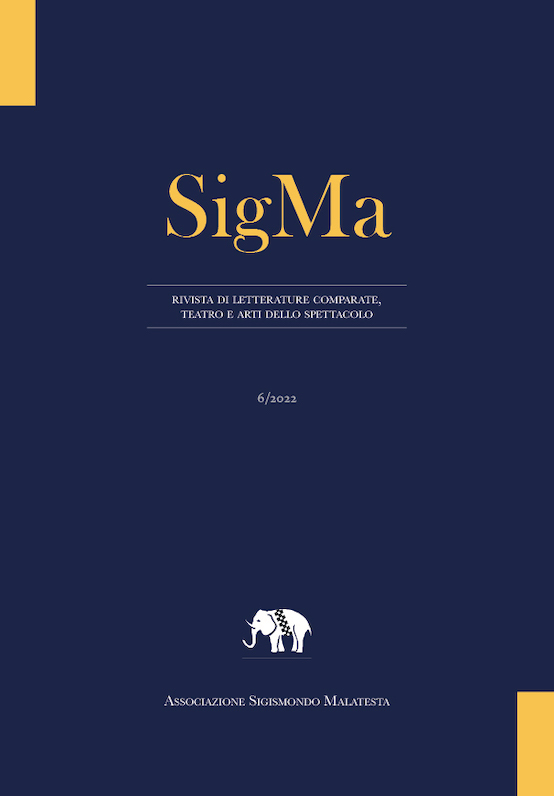Se connaître en tant que sujet, s’essayer en tant qu’écrivain : hybridations génériques et formelles dans trois œuvres de jeunesse (Zola, Loti, Gide)
Abstract
En prenant appui sur trois cas d’étude – La Confession de Claude d’Émile Zola (1865), Aziyadé de Pierre Loti (1879) et Les Cahiers d’André Walter d’André Gide (1891) – le présent article analyse la tension entre la matrice autobiographique, propre à bon nombre d’œuvres de jeunesse, et les procédés de transposition fictionnelle du vécu. L’étude des dispositifs narratifs et des hybridations formelles mis en œuvre dans ces textes révèle, chez les écrivains débutants, l’exigence d’une double investigation de soi : en tant que sujets et en tant que romanciers.
Downloads
SigMa pubblica in internet, ad accesso aperto, con licenza:
|
|
CCPL Creative Commons Attribuzione |
L'autore conserva il copyright sul suo contributo, consentendo tuttavia a chiunque "di riprodurre, distribuire, comunicare al pubblico, esporre in pubblico, rappresentare, eseguire e recitare l'opera", purché siano correttamente citati l'autore e il titolo della rivista. L’autore, al momento della proposta di pubblicazione, è inoltre tenuto a dichiarare che il contenuto e l’organizzazione dell’opera è originale e non compromette in alcun modo i diritti di terzi, né gli obblighi connessi alla salvaguardia di diritti morali ed economici di altri autori o di altri aventi diritto, sia per testi, immagini, foto, tabelle, sia per altre parti di cui il contributo può essere composto. L’autore dichiara altresì di essere a conoscenza delle sanzioni previste dal codice penale e dalle leggi speciali per l’ipotesi di falsità in atti ed uso di atti falsi, e che pertanto Reti Medievali è esente da qualsiasi responsabilità di qualsivoglia natura, civile, amministrativa o penale, e sarà dall'autore tenuta indenne da qualsiasi richiesta o rivendicazione da parte di terzi.

